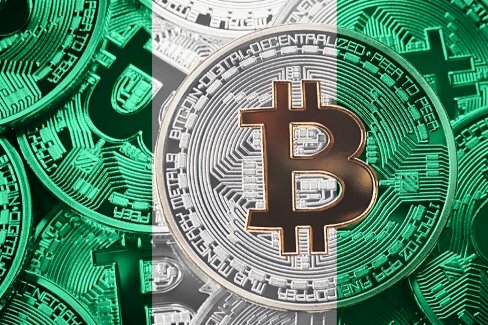” Government’s latest crackdown on cryptocurrency is part of the broader efforts to combat speculative activities in the forex market raising questions about the sustainability of Nigeria’s crypto-friendly environment.”
By Oluwaseyi Ajadi
In a groundbreaking move impacting Nigeria’s dynamic cryptocurrency scene, the government has implemented measures to restrict access to leading platforms like Binance. This regulatory shift has sparked a flurry of reactions from Nigerians, with social media platforms like X (Twitter) buzzing with discussions.
RELATED: Nigeria unbans cryptocurrency as CBN reverses 2021 decision
The Nigerian Communications Commission (NCC) recently issued directives to telecom companies to restrict consumer access to cryptocurrency-related websites, including well-known platforms like Binance, Coinbase, and Kraken. This move follows the Central Bank of Nigeria’s (CBN) decision in December 2023 to reverse its earlier ban on cryptocurrency transactions, signaling a notable evolution in the government’s stance toward digital assets.
Cryptocurrency exchanges, particularly Binance, have played a pivotal role in shaping unofficial market prices for the naira, effectively serving as benchmarks for local foreign currency exchange rates. By blocking access to these platforms, the government aims to assert control over the valuation of the naira, combating speculative activities that have contributed to currency instability.
Bayo Onanuga, the special adviser to President Bola Tinubu, expressed concerns over Binance’s potential to influence the value of the naira, stating, “Binance, facing regulatory showdown in many countries, and causing disruptions in the currency market, should not be allowed to dictate the value of the naira.” This sentiment underscores broader anxieties about the unchecked influence of cryptocurrency platforms on Nigeria’s economic stability.
Yet, the government’s actions have not gone unchallenged. Nigerians, particularly the youth, view cryptocurrency as more than just a financial investment—it represents a beacon of hope amid economic uncertainty and high unemployment rates. Binance, as one of the world’s largest cryptocurrency exchanges, has provided a gateway for Nigerians to participate in the global financial market, making the government’s crackdown a bitter pill to swallow for many.
On Twitter, voices rang out. User @AustinINstate criticized the government’s move, stating, “The ban on Binance clearly shows The CBN and the FG are incapable of curbing this economic menace.” Others, like @immanuel_tech, advocated for stricter regulations on platforms like Binance to prevent currency manipulation.
@unicodeveloper tweeted, “In the year 2024, it’s astonishing that Binance is being blamed for the foreign exchange issues of a nation with a population of 200 million and a 2023 budget of $34 billion.”
@firstladyship chimed in with “Nigerians were trading on Binance when dollar was 350 Naira under Buhari, & it did not just crash to 1800 Asiwaju & Yemi Cardoso are just chasing shadows. The economy & a currency (as a store of value) are driven by sentiments, not by the guns. There can be no quick fixes here.”
@JnrOchi commented, “Seriously, the action is quite laughable. They are busy chasing shadows, while also printing more naira. Nigeria I hail thee. The politicians in real sense are the problem who kept millions of dollars cash in their houses and others kept far away in foreign countries.”
Chimezie Chuta, the founder and organizer of the Blockchain Nigeria User Group, expressed disapproval of the government’s strategy to address issues with the naira by targeting cryptocurrency transactions. He contends that this tactic is flawed and not viable in the long run, given the numerous alternative methods for crypto exchanges. According to him, social media platforms could easily fill the gap for Peer-to-Peer exchanges, potentially worsening the situation. He highlighted the government’s misguided efforts in this regard.
However, supporters of the government’s decision stated that regulatory oversight in the cryptocurrency market is sorely lacking. Reno Omokri tweeted, “Even as a crypto entrepreneur, I still fully support the steps taken to curb Naira speculation on Binance peer-to-peer platforms.” Such sentiments highlight the delicate balance between fostering innovation and safeguarding economic stability.
Another user stated @immanuel_tech “The federal gov’t should make it mandatory for Binance to set limits for buying and selling dollars on P2P not above 5 naira from the official rate. If the official rate is N1,500, nobody should be allowed to put an ad above N1,505”
@GabalawalCrypto has always been unregulated. The problem.
The government’s latest crackdown on cryptocurrency players coincides with broader efforts to combat speculative activities in the foreign exchange market. This regulatory tightening raises questions about the sustainability of Nigeria’s crypto-friendly environment and its implications for the future of digital assets in the country.
As Nigeria grapples with the complexities of regulating cryptocurrency, it faces a critical juncture in its economic trajectory. Balancing innovation with stability will require nuanced policymaking and constructive dialogue between the government, industry stakeholders, and the Nigerian people. Only through collaborative efforts can Nigeria navigate the evolving landscape of digital finance while safeguarding its economic interests





























